In this blog for those caring for people with dementia, Sarah Chapman looks at evidence on personally tailored activities for people with dementia and shares insights from her own experience and those of others.
Page updated 13 March 2023
Take-home points
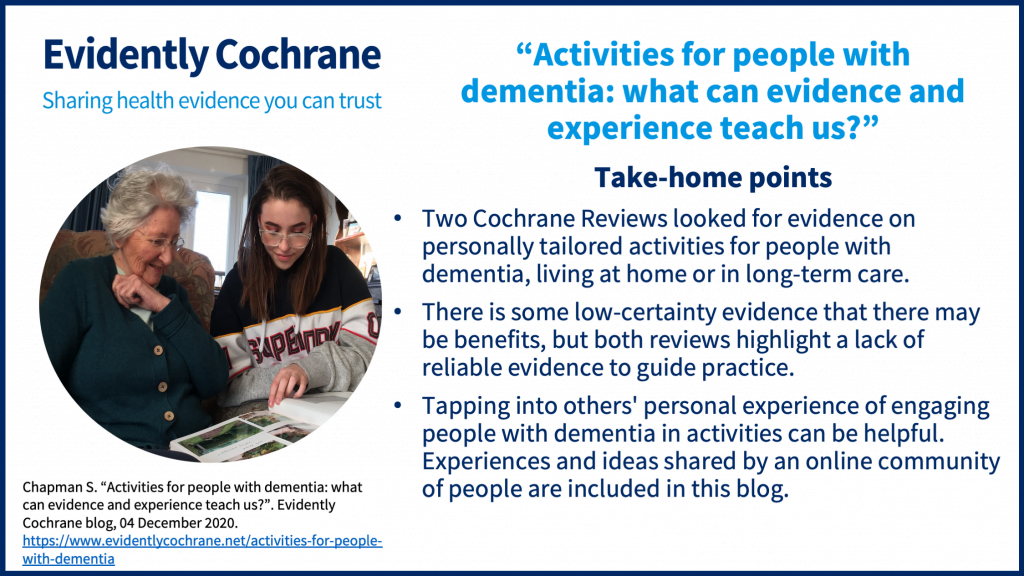
Dementia is a serial thief, isn’t it? Watching my lovely mum decline with dementia, before her death in April, was to witness these thefts; to see loss after loss after loss. While some of these were, eventually, obvious only to us, my “I’ve always been a do-er” mum felt keenly the loss of her sense of purpose. In her perpetual ‘now’, what Mum seemed to need was not a goal to aim for, but a feeling that she was still useful. This was challenging when she had lost the ability to do much at all. Yet until the last week of her life, Mum could still talk, walk, and use her hands. We felt there must be things she could do! I suspected we were being slow to adapt, to shift our thinking from what Mum used to do to what she could do now. This situation will be familiar to many people caring for people with dementia.
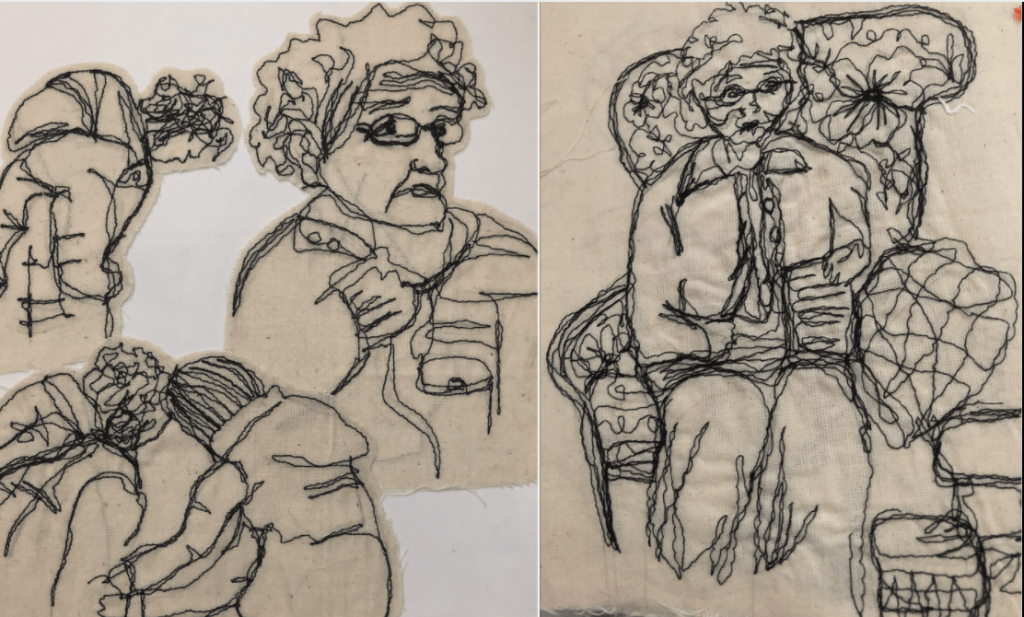
Evidence on personally tailored activities
Engaging people with dementia in activities that are tailored to their interests and preferences is something that would seem to make sense and has been explored in two Cochrane ReviewsCochrane Reviews are systematic reviews. In systematic reviews we search for and summarize studies that answer a specific research question (e.g. is paracetamol effective and safe for treating back pain?). The studies are identified, assessed, and summarized by using a systematic and predefined approach. They inform recommendations for healthcare and research.. The most recent of these, published in August 2020, looks at the effects of personally tailored activities for people with dementia living in their own homes.
The review authors found five relevant studies with 262 people with mild to moderate dementia living at home. In four studies, family caregivers (most often spouses) were trained to deliver the activities based on the person’s interests, and in one studyAn investigation of a healthcare problem. There are different types of studies used to answer research questions, for example randomised controlled trials or observational studies. these activities were offered directly to them.
The review authors found that this approach may slightly improve quality of life and may improve ‘challenging behaviour’. However, it may have little or no effect on depression, affect, passivity or engagement by people with dementia in what’s around them. For the caregivers, it may slightly improve caregivers’ distress, but may have little or no effect on caregiver burden, quality of life, and depression.
It is always important to consider possible harms of interventions, but none of the studies either looked for harmful effects or reported that any harmful effects happened.
The evidence was all ‘low-certainty’ and more reliable research may well produce different results or strengthen these ones.
The Cochrane Review on personally tailored activities for people with dementia in long‐term care was updated in March 2023 and finds that:
- offering activity sessions to people with moderate or severe dementia living in care homes may help to manage agitation, but the effect may be small and last only as long as the activities are delivered
- personally tailored activities may have little or no effect on the negative emotions expressed by the participants
- there is still uncertainty about the effects of personally tailored activities on people’s positive emotions, mood, engagement (being involved in what is happening around them) or quality of sleep
- none of the studies measured effects on the amount of medication people were given, or effects on carers
The review authors comment on the importance, from an ethical perspective, of providing activities for people with dementia in long-term care, whilst noting that the available evidence doesn’t provide guidance on the types of activity or on any aspect of their delivery.
“Do whatever your heart and ingenuity suggest”: helping someone with dementia feel useful
I hope there are good research studies underway that will guide future care for people with dementia. Meanwhile, there is a wealth of experience we might tap into, as I did when I turned to Twitter to ask if anyone had any wisdom to share that could help us find ways to help Mum. Well of course they did! The responses came, from a community of people who never wanted to be in this club, generously sharing their experiences and ideas.
A different life…
Wendy Mitchell was mentioned straight away. She shares insights and practical tips from her own experience of living a purposeful life with dementia. Wendy writes of life after a dementia diagnosis being “a different life – one of adapting and support” and how right she is. My mum wasn’t, by then, capable of the sort of things that Wendy does, so I needed to look further for ideas.
A model for happiness
George Coxon, Care Home Owner Health and Social Care Specialist, pointed to a model for happiness in older age which focuses on four key things: having things to look forward to; positive past life reflections; giving and receiving affection; and being helpful. Even with people with later stages of dementia in their care, George and his colleagues focus on these principles. He admits it’s not easy but that they try very hard to reach the ‘hard to reach’ in a kind, optimistic and positive way.
Looking forward and back becomes increasingly compromised as dementia advances, of course. But thinking about these four needs, we weren’t doing too badly. Mum’s wonderful live-in carer, Sylvia, helped Mum anticipate visits by mentioning them often, even if anticipation had morphed from what we recognize as such to a succession of pleasant surprises! It was strange seeing the ways in which Mum remembered, forgot and remade her life history, but Mum liked looking through the photo albums and had stories from her past that she retold with pleasure. Others mentioned this as something positive too. Mum’s capacity to give and receive affection mercifully remained, to the end, very much intact. But on the fourth, ‘being helpful’, we felt really stuck.
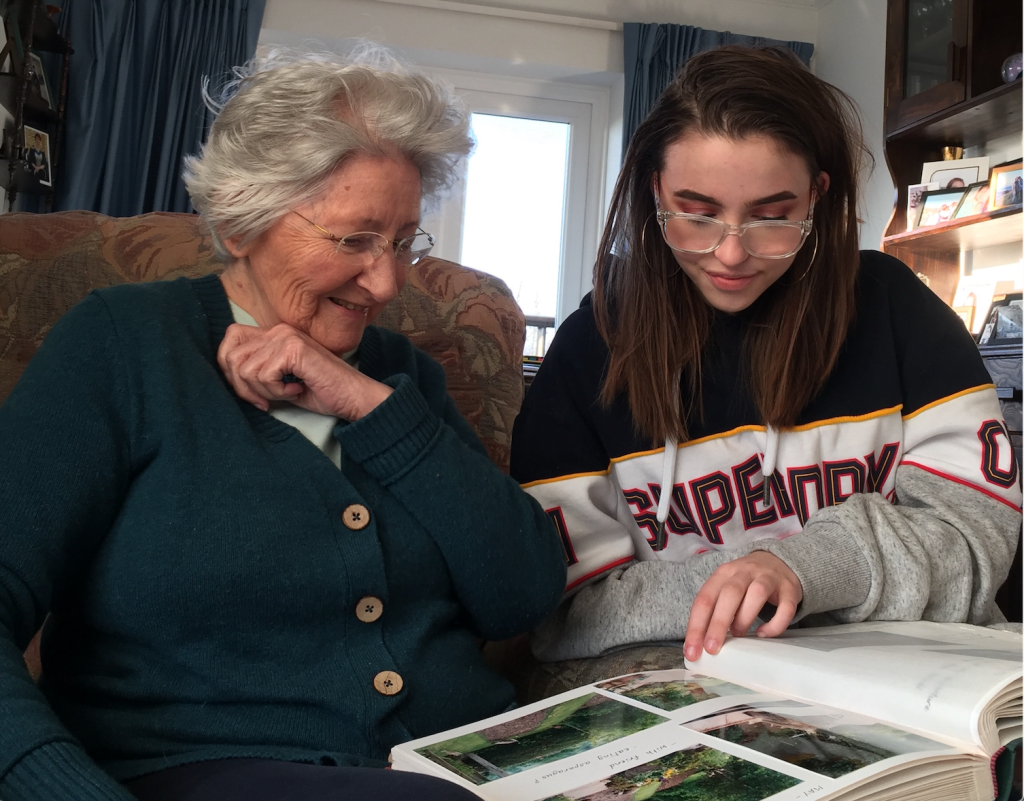
“What purpose do they feel they have…? Start there.”
Wise words here from Mark Taylor, NHS Consultant in Care of the Older Person. This reminded Julia Powell about a woman with dementia whose carer supports her to continue to make crafts and sell them through an online shop – great idea! Julia’s dementia blog, where she wrote about her experiences of trying to improve the well-being of her mother, may give you some more ideas.
Rachel Mortimer alerted me to something I didn’t know about: the Montessori approach for dementia. She said that, at its simplest, this is about reconnecting a person to their sense of self through meaningful activity, which might be a simple action like folding laundry or something more complex, all adapted to the right level for the person so they can succeed in the task.
Even when someone can’t do something in the way that they used to, it seems that often, with a bit of imagination from those supporting them, something can be salvaged.
Finding purpose in familiar tasks
Several people talked about finding ways to help the people they cared for feel useful by engaging them in familiar domestic tasks, small tasks rather than large jobs – dusting a table rather than cleaning a room, for example. Sorting things was also mentioned, from reorganizing a drawer to sorting coloured pencils, perhaps with someone alongside and music on in the background. People found that praising the person and telling them how helpful they are could have a positive impact.
Pleasure in new things?
‘Don’t be afraid to try new things too’ was a message from several people, as among the changes dementia may bring is a willingness to engage in activities a person may not have liked previously.
Creativity and fun
It may still be possible for people to enjoy things that have been meaningful to them, with adaptation. Writing poetry was mentioned, with the carer acting as a scribe. Mum loved to read poetry and to perform it; my daughter made her a book of some of her favourites and Mum was able to read these aloud, a little hesitantly but with great expression and enjoyment. We also had some good times singing with Mum, whose memory of tunes and lyrics seemed largely untouched. These were fun times (the last thing I remember Mum singing was “I’m gonna wash that man right out of my hair” – with actions!) and indeed people on Twitter mentioned the importance of having fun. One person told of her mum – who’d wanted to be an actor – loving performing for the camera, with a hat and a bit of make-up, even in the late stages of disease.
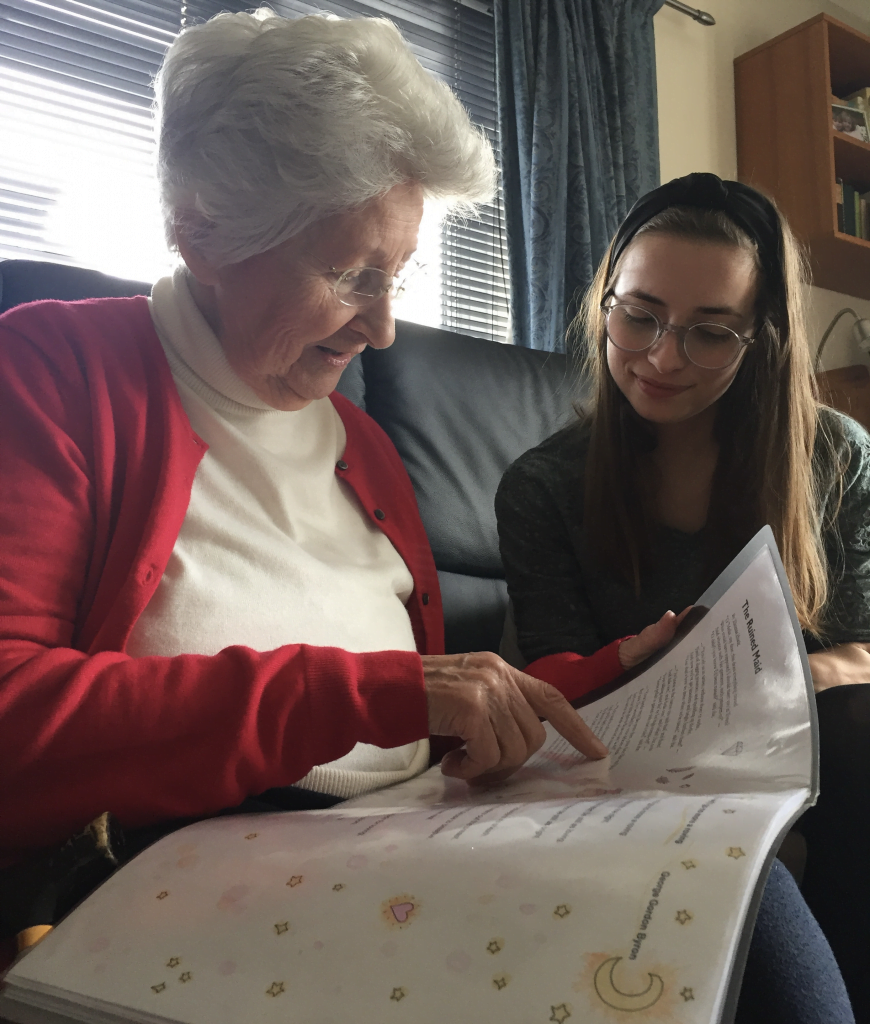
Acceptance
Shibley Rahmen, a doctor whose primary interest is in dementia and whose mum has it, notes that there’s a big difference between the ‘meaningful activities’ of textbooks and what happens in real life. He thinks it is important to try to engage and include a person with dementia where possible, but also talks of acceptance. He accepts that his mother is changing and that “it’s ok for mum to do as little or as much as she wants”. This strikes me as pragmatic and also kind – kind to those caring for someone with dementia as well as the person themselves. It’s a reminder too that as our loved one changes so must we. Adaptation is key.
Changing tack
Kit Byatt said that in his experience as a geriatrician, dementia lead, and son of a mum with dementia, as dementia progresses the ‘medical model’ becomes increasingly irrelevant, and a pragmatic, human, caring model increasingly important. A ‘sense of purpose’, which is what I had been striving to help Mum find, suggests a strategic viewpoint, Kit pointed out, and an alternative approach is to focus on tactical things, like living in the moment, enjoying treats and finding diversions. This made sense to me.
In his book ‘Shapeshifters’, Gavin Francis writes of the advice neuropsychologist A.R. Luria gave Oliver Sacks about a patient who was unable to create new memories. These are words we would do well to heed:
“There are no prescriptions in a case like this. Do whatever your heart and ingenuity suggest. There is little or no hope of any recovery in his memory. But a man does not consist of memory alone. He has feeling, will, sensibilities, moral being – matters of which neuropsychology cannot speak. And it is here, beyond the realm of an impersonal psychology, that you may touch him, and change him.” (p.223)
Books I found helpful
Coming back to this blog in June 2021, it has occurred to me to share the books I sought out, or stumbled across, whilst I and my family were supporting Mum as she declined with dementia. This was as much about working on my own understanding and acceptance as it was about finding practical guidance for how we could best help Mum. The first two are graphic memoirs and, if you’ve yet to discover books that may be classified as ‘Graphic Medicine’, I encourage you to venture into this territory. Some range more broadly than dementia, but I wanted to grapple with a wider look at identity and how illness changes it. Some I read more than once, different bits becoming relevant as Mum changed. Some were worth it for perhaps a single nugget of wisdom that resonated with me. This is a personal list, but I wanted to read and read and, if that’s you too, then this might give you some starting points. I began my reading with Sally Magnusson’s ‘Where Memories Go’ and ended with Nicci Gerrard’s ‘What dementia teaches us about love’. Love is the thread that (it seems to me) runs through them all, and love is something dementia couldn’t touch.
- ‘Afloat: A memoir about mum, dementia and trying not to drown’ by Nigel Baines
- ‘Aliceheimer’s: Alzheimer’s Through the Looking Glass’ by Dana Walrath
- ‘Being Mortal’ by Atul Gawande
- ‘Beloved Old Age And What To Do About It’ Mary Allingham’s ‘The Relay’ handed on to Julia Jones
- ‘Contented Dementia’ by Oliver James
- ‘Into The Silent Land’ by Paul Broks
- ‘I’m Still Here: Creating a Better Life for a Loved One Living with Alzheimer’s’ by John Zeisel
- ‘Lost and Found: Why Losing Our Memories Doesn’t Mean Losing Ourselves’ by Jules Montague
- ‘Shapeshifters’ by Gavin Francis
- ‘Somebody I used to know’ by Wendy Mitchell
- ‘Still Alice’ by Lisa Genova
- ‘What dementia teaches us about love’ by Nicci Gerrard
- ‘Where Memories Go: Why Dementia Changes Everything’ by Sally Magnusson
An addition: in July 2021, I read ‘With the end in mind’ by palliative care doctor Kathryn Mannix. It’s not specific to people with dementia, but it is so worth reading for a better understanding of dying, what a good death looks like (and how to get there), and the things that matter at the end of life. I can’t recommend it highly enough.
Sarah Chapman has nothing to disclose.

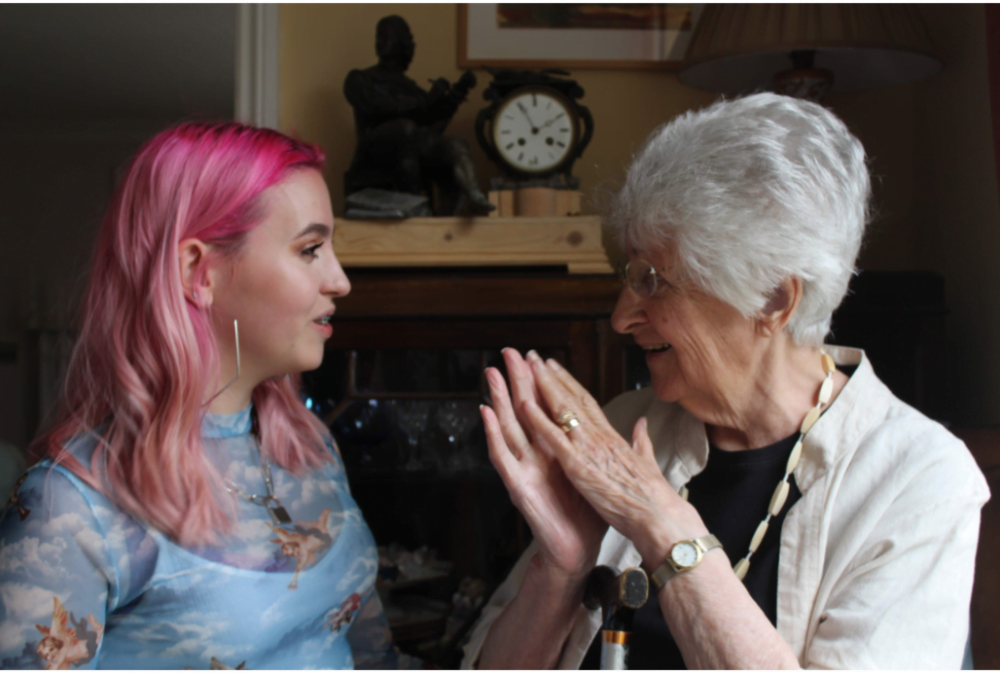

Great ideas here. Thank you!
A warm, compassionate and beautifully illustrated blog, Sarah. I love the closing quotation. Thank you!